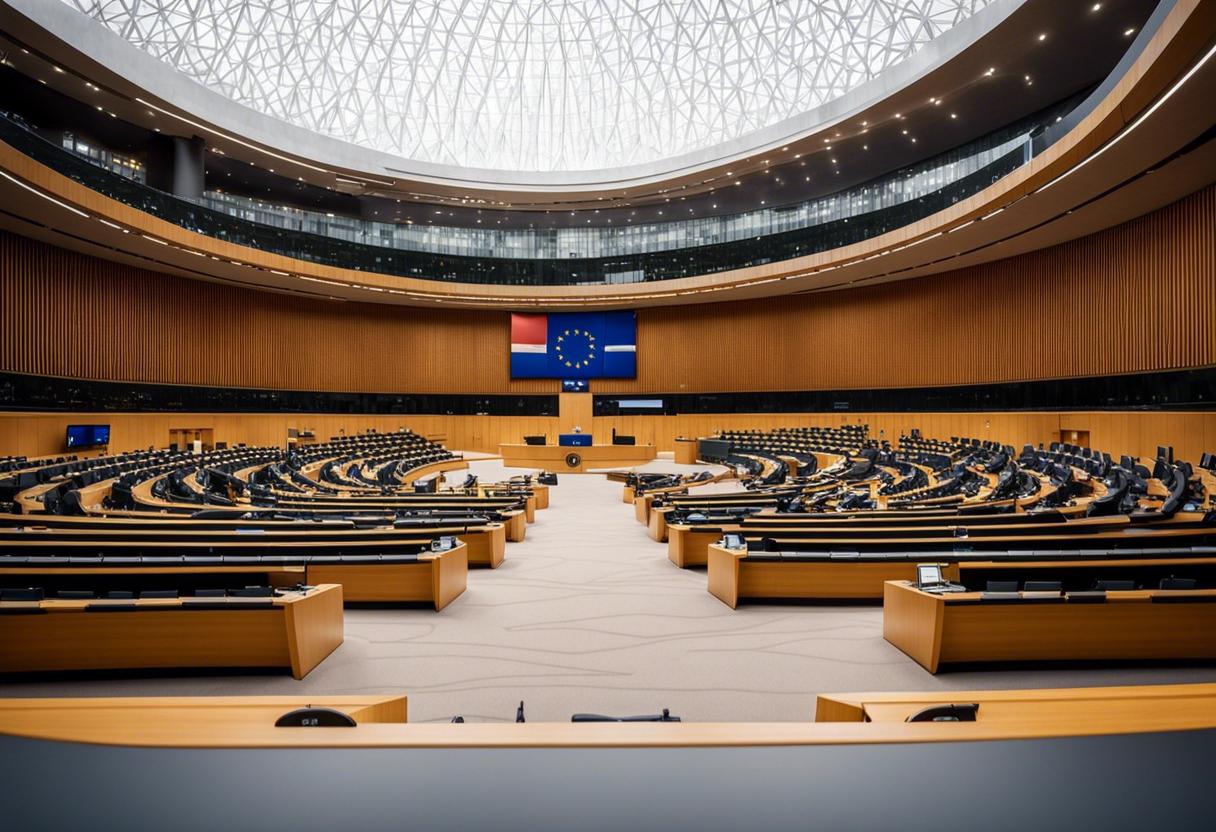Ursula von der Leyen, a leading conservative politician from Germany, is on the verge of securing her second term as the president of the European Commission, which is considered one of the most influential positions in the EU. Although her early actions during the conflict in Gaza had negatively affected her reputation in Ireland, she now enjoys the support of the heads of the 27 EU member states. The formal nomination of von der Leyen for her second presidential term is scheduled for a two-day summit, set for the end of next week, following lengthy discussions about her candidacy on Monday.
The 65-year-old politician was born and raised in Brussels, Belgium to German parents, with her father being a civil servant in some of the earliest European institutions during the 1950s. She identifies as centre-right and is affiliated with the Christian Democratic Union (CDU) in Germany, which is part of the European People’s Party (EPP), that also consists of parties like Fine Gael.
Von der Leyen held several ministerial positions in the cabinet of former German Chancellor Angela Merkel, including the ministry for family affairs from 2005 to 2009, labour ministry till 2013, and then serving as the defence minister for over five years until mid-2019. In 2019, her name cropped up unexpectedly for the role of commission president, although she was relatively unknown on the European political scene at the time.
As the executive head of the EU during her first term, she was generally regarded as successful despite the controversies she faced occasionally. She’s noted for keeping a close-knit circle of trusted advisors, notably Bjoern Seibert, a German who heads her commission cabinet and holds notable sway in Brussels. However, her inclination to keep decision-making authority within this small circle has often led to tensions with those who felt excluded.
Common perceptions of von der Leyen highlight a work-centric personality who spends a lot of time in her 13th-floor office in the Berlaymont and is known to demand detailed written briefings, as one commission official points out.
The most significant achievement of her tenure was enacting the ‘green deal’. It’s a bold package of environmental changes that incorporate obligations by the European Union to transition into economies that rely less on fossil fuels. Moreover, it bans the selling of new motor vehicles powered by combustion engines from 2035 and sets legal obligations to halt the loss of biodiversity.
In the midst of the Covid-19 health crisis, Von der Leyen had prominent involvement in ensuring that the European Union had access to vaccines. Nevertheless, she subsequently faced intense scrutiny over the manner in which she held discussions with the CEO of Pfizer, a leading vaccine manufacturer. This controversy, colloquially known as “Pfizergate”, has instigated several legal proceedings and investigations, which could potentially pose problems for the President of the Commission in the future.
Her comment following the 7th October attacks in southern Israel by Hamas notably tainted Von der Leyen’s reputation amongst the Irish populace. The attacks resulted in the deaths of 1,200 people and led to an Israeli offensive on the Gaza Strip. While on a visit to Israel, Von der Leyen expressed unreserved support for Israel’s retaliation, leading thereafter to the reported death of over 37,000 Palestinians as per Gaza health officials and rendering hundreds of thousands homeless.

